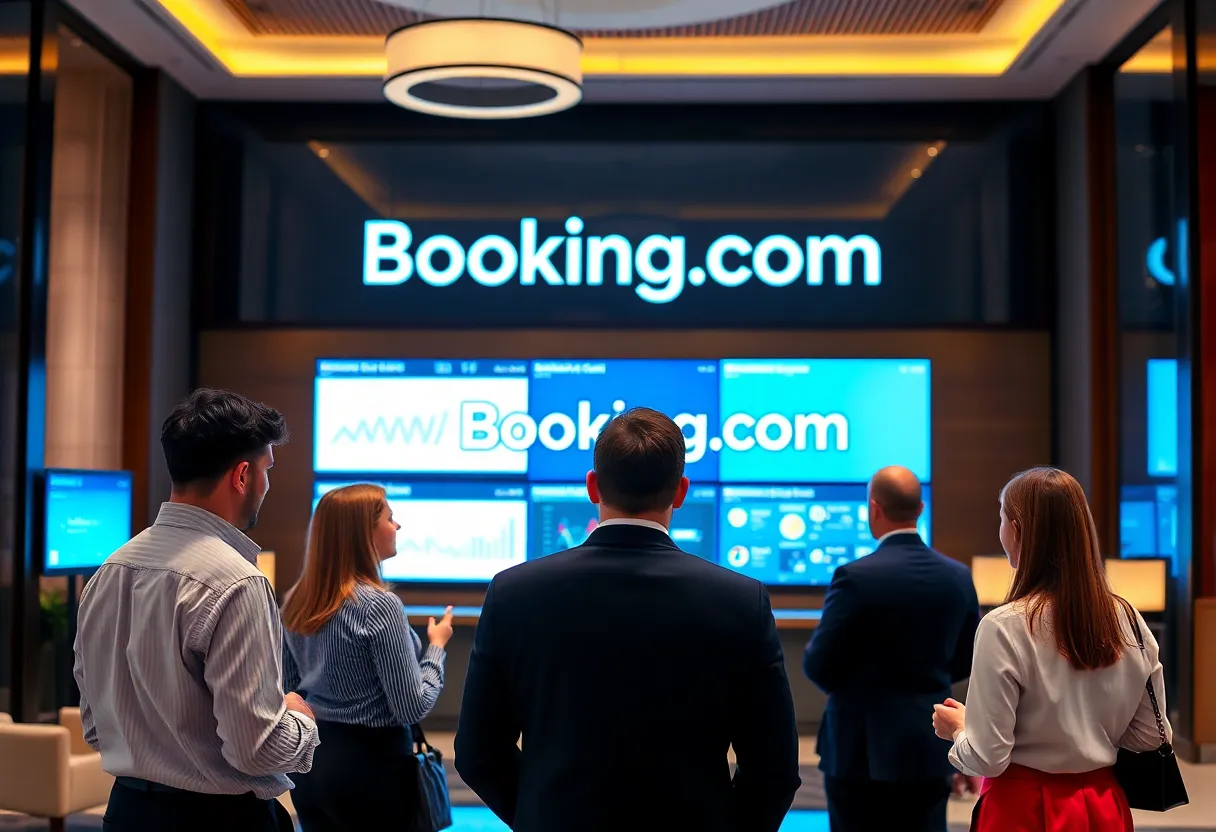

Hotel management teams reassessing their strategies following the significant fine imposed on Booking.com.
Article Sponsored by:
Real Internet Sales is a digital marketing agency located in Columbia, South Carolina. We specialize in website design and development, SEO, social media management, online advertising, AI integration, and workflow automation. Our services also include affiliate marketing and digital strategy.
Real Internet Sales also offer specialized programming for real estate firms, using IDX and RETS feeds to automatically populate MLS properties on their websites for improved property listings and sales. We also work with clients in the restaurant, tourism, and e-commerce industries to enhance their digital presence and streamline operations.
Booking.com has been fined €413 million by a regulatory agency in Spain for imposing unfair conditions on hotels. This significant penalty has prompted hoteliers to rethink their dependence on online travel agencies (OTAs) and evaluate their marketing strategies, particularly in light of evolving digital landscapes and the need for better customer engagement through direct bookings and technology investments.
In a surprising turn of events, a regulatory agency in Spain has slapped online travel giant Booking.com with a hefty €413 million fine for what they term as “unfair commercial conditions” imposed on hotels. This fine has sent ripples through the hospitality industry, leading many hoteliers to reevaluate their reliance on online travel agencies (OTAs) for bookings.
Many hoteliers find themselves in a rather ambivalent relationship with OTAs. On one hand, these platforms are undeniably effective in capturing a substantial number of bookings. However, on the other hand, hotel owners express frustration over the control these agencies exert over guest data. The big question is: how can hotels take back some of that control?
There is a clear shift in focus as hoteliers are now looking to leverage technology more effectively. By gathering, connecting, and analyzing guest data, they aim to improve their operations and financial outcomes. The recent fine against Booking.com serves as a reminder that hotels can no longer afford to be overly dependent on third parties who hold consumer data. By reclaiming direct communication with customers, hotels can enhance their service and boost their bottom line.
All eyes are on the European Union’s Digital Markets Act, which may shake up the rules of engagement for digital marketing and distribution in the hospitality sector. There is a feeling among hoteliers that the traditional legacy technology systems they have relied on might be holding them back from achieving a comprehensive understanding of their guests, due to the siloed data they operate with.
At the recent Phocuswright Europe event, a chorus of voices emphasized the importance of investing in new technology. Hoteliers are encouraged to enhance their operations to cultivate better guest experiences and ensure that customers keep coming back. It’s not just about making bookings anymore; it’s about fostering relationships with guests.
In a world where every euro counts, experts are urging hoteliers to critically assess their digital marketing expenditures. For instance, social media currently eats up 29% of hotel marketing budgets but contributes a mere 1% of total marketing revenue. This glaring disparity indicates that it might be time for hotels to rethink their marketing strategies.
To improve their ROI, hotels should consider redirecting funds toward more effective digital strategies. Pay-per-click (PPC) advertising, which focuses on targeted market segments, is gaining traction as a more fruitful approach compared to influencer marketing, whose effectiveness remains a point of contention—especially for limited-service hotels.
In today’s competitive landscape, hotels harnessing the power of artificial intelligence (AI) and machine learning can analyze guest behavior, optimize pricing, and refine content distribution to improve their market position. Furthermore, hotels that take ownership of first-party data enjoy a distinct advantage in personalizing marketing efforts and enhancing customer interactions.
As the industry evolves, so does the integration of sales, marketing, and revenue management strategies. This approach, which reflects a deeper understanding of their interdependence, is becoming more prevalent. Experts stress the importance of aligning marketing strategies with overall business goals to ensure that each dollar spent yields tangible results.
The booking landscape has transformed post-COVID, with direct bookings experiencing a surge during the pandemic as travelers prioritized safety. However, as the tide turns, many guests are now seeking better deals through OTAs. This duality presents challenges and opportunities for hoteliers aiming to optimize their direct booking channels while recognizing the role OTAs play in traveler behavior.
As the landscape continues to shift, one thing is clear: hotels need to focus on creating high-quality content while leveraging paid distribution to amplify marketing effectiveness. By prioritizing meaningful engagement and evolving their strategies, hoteliers can significantly improve performance metrics and ultimately thrive in this new era.

7001 St Andrews Rd #329 ,
Columbia, SC 29212,
United States
Phone: (+1) 803 708 5514
News Summary A routine shopping trip turned chaotic on April 1 when gunfire erupted inside…
News Summary Castle Peak Holdings' acquisition of Snow King Resort in Jackson Hole marks a…
News Summary A tragic shooting incident in Wando, South Carolina resulted in the death of…
News Summary Beau Atkinson, a standout EDGE rusher from Raleigh, North Carolina, has committed to…
News Summary Smalls Sliders is set to open in Spartanburg on February 18, 2025. The…
News Summary The South Carolina Army National Guard (SCARNG) has secured a partnership with Verizon…